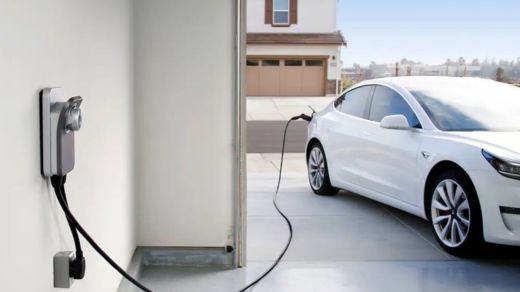Why EVSE Deployment Is Key to Mass EV Adoption

As electric vehicles (EVs) continue to gain traction globally, one critical element stands at the forefront of their mass adoption: Electric Vehicle Supply Equipment (EVSE). Simply put, EVSE refers to the charging stations and infrastructure that allow EVs to recharge. While advancements in EV technology have made them more accessible and efficient, the growth of the EV market heavily depends on the expansion and optimization of EVSE. In this article, we’ll explore why EVSE deployment is a key factor for the widespread adoption of electric vehicles.
The Role of EVSE in EV Adoption
The transition to electric mobility faces a few significant challenges, one of which is ensuring that there are enough reliable charging stations to meet demand. For many potential EV buyers, the fear of running out of power, commonly known as range anxiety, is a substantial barrier. Without a robust charging infrastructure, many are hesitant to make the switch from traditional gasoline-powered cars to EVs.
The availability, convenience, and reliability of EVSE are essential for overcoming these obstacles. The more EVSE stations that are deployed—whether at home, work, or public locations—the easier it becomes for consumers to rely on EVs as their primary form of transportation. Without an extensive charging network, the transition to electric vehicles would stall, regardless of the vehicle’s performance or environmental benefits.
Expanding Access to Charging Infrastructure
As of today, charging infrastructure is still in its infancy in many areas, especially in rural or less-developed regions. While urban areas may have an increasing number of charging stations, the coverage is often still insufficient for long-distance travel or in locations where many people park their vehicles on the street rather than in private garages.
To ensure that EVs are a viable option for a broader audience, charging infrastructure needs to be deployed on a national or even global scale. Public charging networks should be made available in high-traffic areas like shopping centers, highways, and public facilities, ensuring that EV owners have access to fast, reliable charging wherever they go. This is where smart EVSE solutions come into play, offering flexible charging options tailored to consumer needs.
Benefits of Widespread EVSE Deployment
- Reduced Range Anxiety: The more charging stations are available, the less likely drivers are to worry about running out of power. Having a reliable, easily accessible charging network encourages individuals to make the switch to EVs with confidence.
- Faster Charging Times: The development of DC fast chargers is another key benefit. These stations can charge an EV’s battery much faster than traditional Level 2 chargers, reducing the time spent at charging locations and making long road trips more feasible.
- Supporting Home Charging Solutions: Home charging stations are an essential part of the EVSE landscape, but widespread deployment of public EVSE makes it easier for those without a home charging option to use EVs. Public chargers in parking garages, at workplaces, and in commercial locations offer more flexibility for individuals who don’t have access to home chargers.
- Job Creation and Economic Growth: The expansion of the EVSE market can also lead to significant economic benefits, including job creation in installation, maintenance, and manufacturing. As more companies enter the EVSE space, they contribute to the green economy while supporting the transition to a more sustainable future.
The Need for Smart and Scalable EVSE Solutions
The deployment of EVSE doesn’t just refer to putting more charging stations in the ground. It also involves smart charging technology that can adapt to increasing demand, manage grid loads efficiently, and integrate renewable energy sources. Smart EVSE allows users to monitor and control their charging, which makes the experience more flexible and efficient.
One company leading the way in making EVSE solutions more intelligent and scalable is GONEO. Their smart charging stations not only make it easy for consumers to charge their vehicles but also integrate with home energy systems. GONEO’s chargers allow homeowners to connect their solar panels, battery storage, and EVSE for seamless energy management, making charging more affordable and sustainable.
By offering cloud-based monitoring, load management, and even solar-powered EVSE solutions, GONEO ensures that EV owners can access reliable charging while minimizing their carbon footprint. With the right combination of solar energy and EVSE, homeowners can charge their vehicles without relying on grid electricity, which further accelerates the transition to a clean energy future.
Conclusion: The Future of EV Adoption Relies on EVSE Deployment
The success of electric vehicle adoption depends largely on the availability and scalability of EVSE. As EV technology improves, the charging infrastructure must also evolve to meet growing demand. This means deploying more chargers, integrating advanced smart technologies, and making charging accessible in both private and public spaces.
GONEO is at the forefront of this transition, offering smart, scalable solutions that cater to the needs of modern EV owners. With GONEO’s innovative products, charging your EV becomes not only more efficient but also a crucial step toward a sustainable and energy-independent future.


